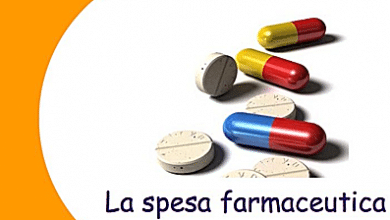
Neither published studies nor scientific representatives are able to give the doctor prescribing the drug the minimum interpretative tools he needs.
By Gino F. Caletti – Wednesday, December 30, 2015 – Affaritaliani.it
u A recent British study has highlighted the real media power of pharmaceutical companies. The examination of 546 clinical trials (trials) on the use of drugs has allowed us to discover that the result is different if the study is financed by the pharmaceutical company producing the drug or if it is financed by the Government. The drug gets the promotion in the 85% of the studies in the first case, while the percentage of beneficial effects of the drug drops to a far from reassuring 50% in the second case. Another alarming fact is that, in the vast majority of cases, i trials those that find publication in magazines are those that demonstrate an effective therapeutic action of the drug, while those that demonstrate its ineffectiveness, or even worse, its danger, are, so to speak, forgotten and never published (1). According to Sally Hopewell of the Cochrane Center in Oxford, author of this interesting analysis, the data obtained “(…) have significant implications for health systems. Until both i both positive and negative results of clinical trials, it will be impossible to make a clear and certain assessment of the safety and efficacy of a drug”. The cleverness of the pharmaceutical companies is revealed with the use of the following trick: since it is not possible to hide all the negative results of the studies of a drug, some of these are only made public 3-4 years after the publication of the studies same drug have demonstrated positive effects (2). According to the same research, in 1 out of 5 cases the culprits for not publishing studies are the researchers themselves and not the publishers of scientific journals. The excuse used by researchers seems to always be the same: the data is not interesting or the time to devote to publication is too little.
A recent British study has highlighted the real media power of pharmaceutical companies. The examination of 546 clinical trials (trials) on the use of drugs has allowed us to discover that the result is different if the study is financed by the pharmaceutical company producing the drug or if it is financed by the Government. The drug gets the promotion in the 85% of the studies in the first case, while the percentage of beneficial effects of the drug drops to a far from reassuring 50% in the second case. Another alarming fact is that, in the vast majority of cases, i trials those that find publication in magazines are those that demonstrate an effective therapeutic action of the drug, while those that demonstrate its ineffectiveness, or even worse, its danger, are, so to speak, forgotten and never published (1). According to Sally Hopewell of the Cochrane Center in Oxford, author of this interesting analysis, the data obtained “(…) have significant implications for health systems. Until both i both positive and negative results of clinical trials, it will be impossible to make a clear and certain assessment of the safety and efficacy of a drug”. The cleverness of the pharmaceutical companies is revealed with the use of the following trick: since it is not possible to hide all the negative results of the studies of a drug, some of these are only made public 3-4 years after the publication of the studies same drug have demonstrated positive effects (2). According to the same research, in 1 out of 5 cases the culprits for not publishing studies are the researchers themselves and not the publishers of scientific journals. The excuse used by researchers seems to always be the same: the data is not interesting or the time to devote to publication is too little.
 Exposure of serious side effects (SAEs) emerging from trials on drugs has considerable importance, since it would allow a more objective clinical use by the doctor in assessing the risks and benefits of the drug in question. There is a US Government Registry of Clinical Trials (ClinicalTrials.gov) (3) reporting all adverse effects resulting from drug studies. One should therefore expect to find the same studies published in scientific journals and above all that the same side effects reported by the register are reported in the publication ClinicalTrials.gov for the same drug in the same trials. Instead, among the 300 examples of trials with serious side effects reported by the registry, 78 (the 26%) are not published in scientific journals and 20 (the 7%) are published with data that do not correspond to those reported by the registry. For the 202 remaining studies, 26 of them (the 13%) are published but do not mention the severe side effects that the registryClinicalTrials.gov has ascertained, 4 studies (the 2%) declare the absence of serious effects that are present and 33 studies (the 16%) do not exactly report the total number of serious side effects. Among the remaining 139 trials, for 44 of these (32%) the number of serious side effects per group published in journals does not match the data in the registry.
Exposure of serious side effects (SAEs) emerging from trials on drugs has considerable importance, since it would allow a more objective clinical use by the doctor in assessing the risks and benefits of the drug in question. There is a US Government Registry of Clinical Trials (ClinicalTrials.gov) (3) reporting all adverse effects resulting from drug studies. One should therefore expect to find the same studies published in scientific journals and above all that the same side effects reported by the register are reported in the publication ClinicalTrials.gov for the same drug in the same trials. Instead, among the 300 examples of trials with serious side effects reported by the registry, 78 (the 26%) are not published in scientific journals and 20 (the 7%) are published with data that do not correspond to those reported by the registry. For the 202 remaining studies, 26 of them (the 13%) are published but do not mention the severe side effects that the registryClinicalTrials.gov has ascertained, 4 studies (the 2%) declare the absence of serious effects that are present and 33 studies (the 16%) do not exactly report the total number of serious side effects. Among the remaining 139 trials, for 44 of these (32%) the number of serious side effects per group published in journals does not match the data in the registry.
P was 31 trials, the number of serious side effects is higher in the registry ClinicalTrials.gov than on the published article with a data difference of more than 30 %s, for at least one group, in 21 studies. Only 33 trials (11%) have been published respecting number and description of serious side effects (4). The conclusion of the article, by the researchers, was that, in order to be able to understand the extent of the serious side effects of a drug, consulting the publication of the trials is not sufficient; in short, it is considered necessary to consult the register ClinicalTrials.gov.
was 31 trials, the number of serious side effects is higher in the registry ClinicalTrials.gov than on the published article with a data difference of more than 30 %s, for at least one group, in 21 studies. Only 33 trials (11%) have been published respecting number and description of serious side effects (4). The conclusion of the article, by the researchers, was that, in order to be able to understand the extent of the serious side effects of a drug, consulting the publication of the trials is not sufficient; in short, it is considered necessary to consult the register ClinicalTrials.gov.
Ergo, neither published studies nor scientific representatives are able to give the doctor prescribing the drug the minimum interpretative tools he needs. So the question is this: every time we read about a miracle drug, with incredible results that immediately opened the doors of the (rich) market, should we believe it or not? In my opinion not. In no way can a drug induce striking results in terms of healing. Pharmacological healing goes against the very essence of the drug, of the company that produces it and of its economic policy. What interests would a pharmaceutical company have in producing and marketing a drug that completely resolves a disease? You would see your sales go to zero as soon as everyone was cured of that disease. Can a pharmaceutical company afford to spread negative news about a product that has cost billions of dollars to test? Why do pharmaceutical companies only publish the 32% of the research they fund within two years of completing it? Why aren't all other results published? If the studies were all positive, therefore useful, having required many dollars for experimentation, would they all be published? Is it reasonable to think that when 2 out of 3 studies are rejected it is because they are negative and therefore dangerous for the commercial success of the drug? When we read a study reporting data on a drug, it is important that we know the sponsor of the study. The advice, therefore, is to consult the register already mentioned several times at this internet address (http://www.clinicaltrials.gov
 This at least for studies prior to 2014. From 18 September of that year, thanks to the intervention of the HRA (Health Research Authority) (5), founded in December 2011 to protect and promote the interests of patients and the public in healthcare research, stakeholders met to discuss the proposals and steps needed to regulate the registration of clinical trials in the UK. The approval of the new European Union Clinical Trials Regulation (EU CTR) in April 2014 will mean changes to the way clinical research is done in the years to come. The EU CTR will enter into force in 2016, probably something will happen and it will no longer be so easy for pharmaceutical companies to hide behind piloted studies and listless and artfully 'informed' doctors. The UK will lead the way in Europe, but this should be just the beginning. We are waiting to evaluate when transparency will actually become part of scientific research, even if rather than wondering 'when', perhaps we are still at the 'if' stage. Until proven otherwise, he's still running the show Big Pharma.
This at least for studies prior to 2014. From 18 September of that year, thanks to the intervention of the HRA (Health Research Authority) (5), founded in December 2011 to protect and promote the interests of patients and the public in healthcare research, stakeholders met to discuss the proposals and steps needed to regulate the registration of clinical trials in the UK. The approval of the new European Union Clinical Trials Regulation (EU CTR) in April 2014 will mean changes to the way clinical research is done in the years to come. The EU CTR will enter into force in 2016, probably something will happen and it will no longer be so easy for pharmaceutical companies to hide behind piloted studies and listless and artfully 'informed' doctors. The UK will lead the way in Europe, but this should be just the beginning. We are waiting to evaluate when transparency will actually become part of scientific research, even if rather than wondering 'when', perhaps we are still at the 'if' stage. Until proven otherwise, he's still running the show Big Pharma.
1. lee k-Bacchetti P-Sim I., Publication of clinical trials supporting successful new drug applications: a literature analysis in PLoS Med., 23;5(9):e191 2008.
2.Sally Hopewell-Mike J Clarke-Lesley Stewart-Jayne Tierney, Time to publication for results of clinical trials, Editorial Groups: Cochrane Methodology Review Group Published Online: 18 APR 2007.
3. https://www.clinicaltrials.
4. Tang E–Ravaud P–Riveros C–Perrodeau E–Dechartres A. Comparison of serious adverse events posted at ClinicalTrials.gov and published in corresponding journal articles, in BMC Med., 14;13:189 . 2015.





